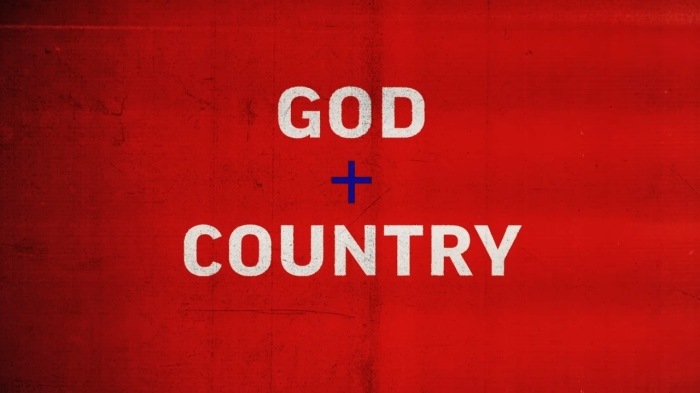Rob Reiner's 'God and Country' is a schizophrenic, partisan broadside against conservative Christians (review)
Film suggests 'Christian nationalists' are thirsting for political violence

"God and Country," the new documentary produced by archliberal Rob Reiner that hit theaters last week, is a partisan broadside that deceptively conflates so-called Christian nationalism with positions held by a large swath of conservative Christians.
The premise of the film is schizophrenic, demonizing Christians with inflammatory insinuations that invoke the Third Reich, while at the same time deriding them for having a persecution complex because they fear a growing cultural hostility.
Of the 18 expert talking heads recruited to opine on "the implications of Christian nationalism and how it distorts not only the constitutional republic, but Christianity itself," none are especially sympathetic to the movement, which is broadly defined in the film as "basically the idea that America was founded as a so-called Christian nation, and that our law should be based on the Bible."
By stringing together disjointed, out-of-context clips that lump together John MacArthur and Billy Graham with obvious charlatans and screeching fringe preachers, the filmmakers reveal either their profound ignorance or their cynical desire to assign the pejorative Christian nationalist label as widely as possible.
Rob Boston, a senior adviser at Americans United for Separation of Church and State, at one point lists political positions common among conservative Christians to describe his idea of the Christian nationalism that supposedly poses such a danger to the republic.
"Christian nationalists don't like feminism, they want to roll that back," he says. "They are appalled at the idea of LGBTQ rights; they want to roll those back. They do not like legal abortion, they want to end that in all 50 states. They do not like the idea that we have a secular public school system."
Also rolled into the Christian nationalist movement are those who oppose Critical Race Theory and pornographic books in schools, as well as those Evangelicals who seek political change by mobilizing the electorate to vote for candidates who reflect their worldview. Entities like The Heritage Foundation, Turning Point USA and Hillsdale College that contribute to such an effort are maligned as "Christian nationalist organizations."
The film suggests that adhering to conservative Christian views is bad enough, but any attempt at securing political representation to enact them is presumably dangerous and even idolatrous, evincing what Russell Moore describes as "a valorization of power itself."
Former President Donald Trump, therefore, is the main villain of the documentary, who supposedly played on the racism and lust for power simmering in the Christian nationalist heart. His appearance prompts ominous music and tired accusations that Christians who support him have "abandoned their core principles."
Though figures such as David French and Skye Jethani speak dismissively in the film of the concern many Christians feel regarding what they perceive as a rising tide of antipathy, "God and Country" will do little to allay such fears with its incendiary alarmism.
Kristin Kobes Du Mez, Ph.D., a professor of history and gender studies at Calvin University, wrings her hands over the "more muscular Jesus" and "warrior Christ" she claims has emerged among Evangelicals in recent years, laying the groundwork for Christian nationalists to believe political violence is acceptable.
Moore likewise warns of "people who will translate spiritual warfare categories into literal political violence," and former pro-life activist Rob Schenck laments the pastors he knows who arm themselves during services.
After implying that Christian nationalists are thirsting for bloodshed, the film draws a through line from Trump to Charlottesville to January 6, an event laid at the feet of Christian nationalism and presented as the most disastrous of its endeavors. Coming in a close second is the overturning of Roe v. Wade, a cause the movie spuriously claims was taken up by the Christian Right only because they failed in their original agenda of opposing school desegregation.
The film goes on to dial the rhetoric up to a fever pitch by reflecting on how Christians in Germany allowed Adolf Hitler to assume power, insidiously implying that a parallel scenario is playing out among Christians who support the former president.
"This threat of what I no longer even pretend is Evangelicalism — this white religious nationalism — may present one of the greatest dangers ever to our democratic experiment," Schenck says. "It's an ugly exercise to try to imagine what America might do as a fascist state."
"Christian nationalism uses Christianity as a means to an end," says Moore. "That end being some form of authoritarianism."
As the film concludes, voices use religious language to admonish the audience regarding what it means to be a true Christian in the political realm, making clear that they are not free of the Evangelical impulse they scorn.
"The biggest sin, if you will, of Christian nationalism, is that it sees pluralism as a weakness, and not what it is: the foundation of what it means to be American," says Reza Aslan, who abandoned Christianity for Islam and once proved his own radical devotion to multiculturalism by eating a cooked human brain with a fringe Hindu sect on CNN.
"Everywhere you look, when the church has been at its best, it protects people regardless of their race, their creed, and their sexuality," minister and progressive social activist William Barber II says amid footage of a pride parade in the closing scene.
The clear takeaway is that for many on the Left, Christian nationalism is simply any form of Christianity that seeks political representation without first bowing the knee to their progressive orthodoxy.
Many factions vie for their place in the rough-and-tumble of the public square, but conservative Christians seem to be the only ones expected to give up the battle, even by those within their own ranks.
Jon Brown is a reporter for The Christian Post. Send news tips to jon.brown@christianpost.com





























